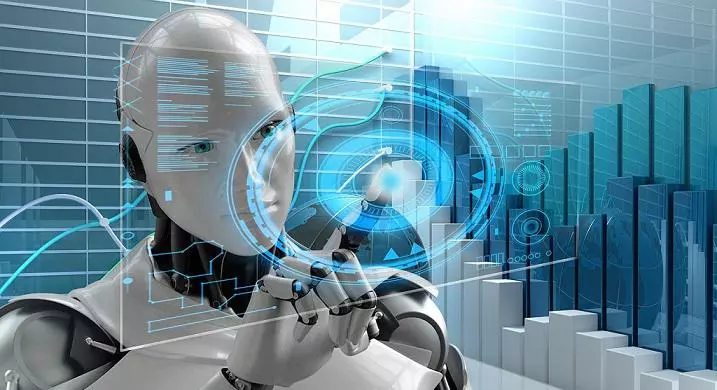
Will AI usher in a new era of global dominance?
text_fieldsThroughout human history, there have been pivotal moments that have acted as turning points, dramatically altering the future of the human race. The discovery of fire, the invention of the wheel, and the harnessing of electricity are all events that have completely changed the course of human civilization. Similarly, in our time, Artificial Intelligence (AI) is transforming our era far beyond any previous changes.
Artificial Intelligence is revolutionizing the way we live, work, and interact with each other on a daily basis. Today, AI has become the most covered topic in global news. This coverage spans a variety of sectors from healthcare and education to finance and transportation, discussing the transformative influence of AI.
AI is making advancements beyond our imagination, capable of changing the world. However, like any new technology, the potential dangers AI could pose to society cannot be ignored.
But fears of technology becoming a threat to civilization are nothing new. When pocket calculators became widespread in the 1970s, people worried that children would not learn math and would do all their homework on calculators. But the same is likely to happen with AI technology in the days to come, with pocket calculators enabling people to perform mathematical tasks more quickly and accurately. To cite just a few examples, a student struggling with a complex math problem can have an artificial intelligence app installed on a mobile phone that guides him through the steps to solve the equation without providing a one-word answer. While they can serve as an aid in a wide variety of subjects, such as learning language, art, including coding and drawing, explaining concepts, and solving errors, it's important to use it responsibly, like any technology.
here is already much talk about the changes AI will bring to healthcare and medicine, using artificial intelligence to improve diagnosis, patient care, and personalized treatment. The AI program can analyze complex medical images such as X-ray MRI and CT scans faster than radiologists. AI will help diagnose various diseases, including cancer, at an early stage
While these may lead to unprecedented advances in convenience and services, they also pose challenges such as privacy concerns and the potential for increased inequality. AI-based software is now being used to artificially create people's voices, images, and videos. Hyper-realistic digital fake documents depicting people saying or doing things they would never do have become a menace. There have been cases where many people have been politically defamed using it. A doctored video that recently circulated of US House of representative Speaker Nancy Pelosi drunk during a speech is just one example. It has gone viral and even been shared by prominent figures without verifying its authenticity. Misuse of deepfake technology can lead to character assassination, blackmail and even fraud. As deepfake technology continues to evolve, the challenges this poses are no small. This situation calls for the need for legislation based on strong ethical frameworks.
One of the areas where AI is expected to have the greatest impact is the job market. According to a report by the World Economic Forum, millions of jobs will be lost in the coming years. However, new jobs are also expected to be created in a whole host of areas such as data analysis, software development and robotics.
As with all aspects of our lives, AI will become an invisible presence in the devices and infrastructure we use like mobile phones. Smart homes, personalized healthcare, self-driving cars are just a few examples of AI that will improve our daily lives in the near future.
Advances in artificial intelligence fundamentally depend on how data is stored and processed. In the digital age, nothing is more valuable than data. In the future, those who will be able to harness the power of AI and profit from it will be those who hold the most data. That's why Elon Musk bought Twitter. OpenAI was founded in 2015 by prominent entrepreneurs and scientists including Elon Musk and Sam Altman. From this association came the origin of ChatGPT in 2022, a technology that amazed the world. We won't have to wait long to usher in a new era where humans will become superhuman with the combination of AI technology and data.
(The author is the producer and co-screenwriter of India's first film on the AI theme, 'Monica: An AI Story'.)






















